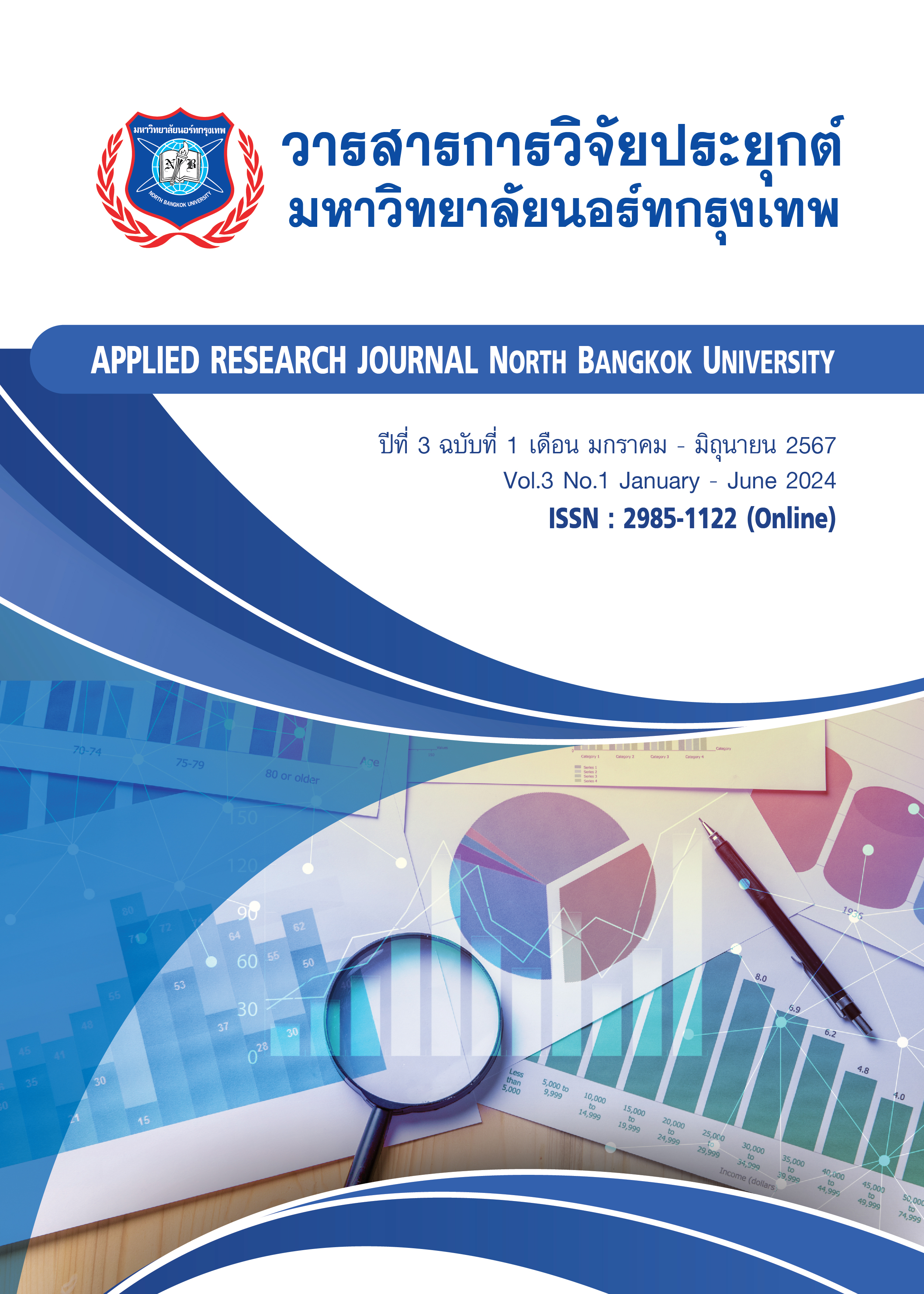Perception of Data on English Usage Potential from Social Media of Tourist Police Officers
Main Article Content
Abstract
In this research, the researcher considers 1) the perceptions of data by selected tourist policeman as reflective of their English skills in using social media. The researcher also studies. 2) the problems of data perception encountered by these policeman. Moreover, the researcher examines 3) the utilization of social media as a means of developing the English skills of these policeman. Furthermore, the researcher compares 4) problems in data perceptions of the content of social media as reflective of English skills and utilization of social media in developing English skills by the policeman as classified by the demographical characteristics of gender, age, and education. In collecting quantitative data, the researcher constituted a sample population of 400 tourist police officers. A questionnaire was used as a research instrument in the quantitative phase of investigation. Using techniques of descriptive statistics, the researcher analyzed the data collected in terms of percentage, mean, and standard deviation. In testing the differences between the means of two independent groups, the researcher employed the independent samples t-test technique, the one-way analysis of variance (ANOVA), F test, and Fisher’s least significant (LSD) multiple comparison method. Statistical significance was set at the .05 level. In addition, in the qualitative phase of investigation, and thence descriptively presented.
The tourist police officers used social media overall and in all aspects at a moderate level. These aspects were expressing their opinions and giving responses, perceptions of information, sharing, and posting, respectively. The tourist police officers encountered problems in the use of social media overall and in all aspect at a moderate level. These aspects were expressing their opinions and giving responses, posting, perceptions of information, and sharing, respectively. The tourist police officers had opinions concerning the benefits of social media in developing English skills overall and all aspects at a moderate level. These aspects were reading, listening, speaking, and writing, respectively.
The tourist police officers who differed in gender did not exhibit concomitant differences in encountering problems in using social media, as well as in utilizing social media for developing English skills. The tourist police officers who differed in age did not evince parallel differences in the use of social media. However, they displayed corresponding differences in the utilization of social media in developing their English skills at the statistically significant level of .05. The tourist police officers who differed in respect to the faculty in which they were enrolled manifested associated differences in the use of and problems encountered in using social media, as well as in respect of social media in developing their English skills at the statistically significant level of .05.
Article Details

This work is licensed under a Creative Commons Attribution-NonCommercial-NoDerivatives 4.0 International License.
Journal of TCI is licensed under a Creative Commons Attribution-NonCommercial-NoDerivatives 4.0 International (CC BY-NC-ND 4.0) licence, unless otherwise stated. Please read our Policies page for more information...
References
กฤษฎา เลิศสถิตไพโรจน์ และอัจฉราพรรณ จรัสวัฒน์. (2561). ศึกษาสมรรถนะหลักของเจ้าหน้าที่ตำรวจสังกัดกองบังคับการตำรวจท่องเที่ยวในการเตรียมพร้อมสู่ประชาคมเศรษฐกิจอาเซียน, วารสารสังคมศาสตร์บูรณาการ. 2(2), 3-24
กัญญาภัทร แสงแป้น. (2565). ผลการจัดการเรียนรู้โดยใช้รูปแบบการสอนแบบเน้นภาระงานร่วมกับสื่อสังคมออนไลน์เพื่อส่งเสริมทักษะการพูดภาษาอังกฤษเพื่อการสื่อสารของนักศึกษาครู มหาวิทยาลัยราชภัฏจันทรเกษม. วารสารวิชาการ สถาบันวิทยาการจัดการแห่งแปซิฟิค. 28(1), 109-125.
นรนท สินภิบาล และศรุตา สมพอง. (2562). ความรับผิดชอบของกองบัญชาการตำรวจท่องเที่ยว. วารสารวิชาการธรรมทรรศน์. 19(4), 93-103.
นิภาวรรณ นวาวัตน์ และณัฎฐนา ลีฬหรัตนรักษ์. (2563). การพัฒนารูปแบบการสอนทักษะการพูดภาษาอังกฤษเพื่อการสื่อสารแบบเน้นภาระงานร่วมกับการใช้สื่อสังคมออนไลน์เพื่อเสริมสร้างความสามารถในการพูดภาษาอังกฤษสำหรับนักศึกษาปริญญาตรี, วารสารมนุษยศาสตร์และสังคมศาสตร์ บัณฑิตวิทยาลัย มหาวิทยาลัยราชภัฎพิบูลสงคราม. 14(3), 593-608.
Chinwe, U. V. (2015). The English Language of the Nigeria Police. Journal of education and practice, 6(22), 1-3.
Karl, J. B. (2016). Limitless learning: Assessing social media use for global workplace learning. The Learning Organization, 23(4), 249-270
Nordin, N., & Abdul Khalid, S. N. (2021). Tourist police service quality and service culture influence on tourists’ confidence. Journal of Tourism, Hospitality and Culinary Arts, 13(1), 15-36.
Pradeep, N. C. (2017). Policing tourism: Challenges and opportunities of tourist police system in India. Evolving Paradigms in Tourism and Hospitality in Developing Countries: A Case Study of India, 26-57.
Siwayingsuwan, P. (2015). Needs and problems in English listening and speaking of tourist police officers at Suvarnabhumi airport. Language Institute, Thammasat University.
Wahyuni, H., Purnomo, E. P., & Fathani, A. T. (2021). Social media supports tourism development in the COVID-19 normal era in Bandung. Jurnal Studi Komunikasi, 5(3), 600-616.


